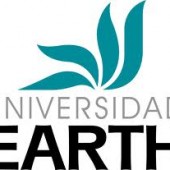
The purpose of this paper is to propose environmental education and eco-literacy as components of education for sustainable development through the examination of an eco-literacy program offered by EARTH University in Costa Rica to rural community public schools. To illustrate these components we examine the development of a program/curriculum used in 17 elementary schools. We draw two important conclusions from our examination. First we found that external national political, social, and economic forces were important to the program’s success. Secondly we illustrate the importance of developing and programs that address the specific needs and issues of the local region.
Continue ReadingAbstract An innovative framework for sustainability helps investigate the impacts of real estate development and educational attainment of newcomers; more specifically, landscape transformation due to ‘amenity migration’ into the Global South. We argue that sustainability research requires a de-categorization from mutually exclusive ‘human’ and ‘nature’ divisions, to refocus on intersections of multiple and complex socio-environmental […]
Continue Reading